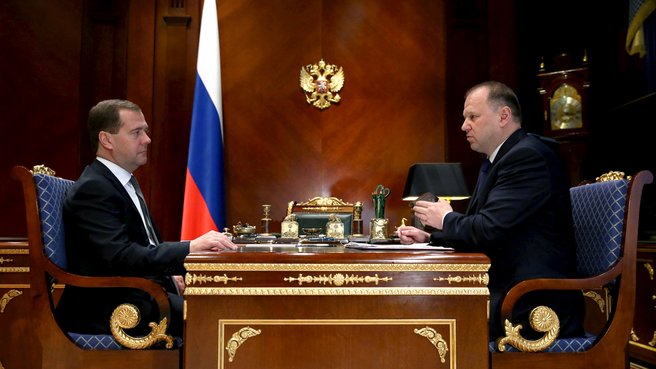Nikolay Tsukanov, the governor of Kaliningrad, says that people he suspects are Maidan activists are arriving in his region alongside genuine refugees from Ukraine and that they are being sent by Western “special services” to “unleash a Maidan” in that Russian exclave and others as well.
According to “Nezavisimaya gazeta” today, Russian experts disagree about Tsukhanov’s statement. Some agree and say it reflects an attempt by the West to show Moscow that it has separatist regions like those in southeastern Ukraine. Others say it is either a demonstration of loyalty, a demand for more resources to deal with this situation, or the basis for witch hunts against political opponents.
But however that may be, declarations like that of the Kaliningrad governor will further exacerbate negative attitudes among Russians towards Ukrainians in general and Ukrainian refugees in particular and that in turn will make Ukrainians even more negatively inclined toward Russia and Russians.
Without giving any sources, Tsukanov said that a group of young single people had crossed into Kaliningrad from Poland and that it “was no secret for anyone” that “Western special services are working to unleash a Maidan in Kaliningrad,” suggesting that the second is true and implying that the first is linked to it.
Aleksey Mukhin, head of the Moscow Center for Political Information, says that what Tsukhanov is talking about is at least plausible. The western border of Ukraine is open “for people of an adventurist cast” of mind, and “potential mercenaries who have fought in Iraq, Syria, and Libya” may be coming it.
But he continues, “it would be very strange to accuse Western countries or Russia” as being behind them. Moreover, Polish officials have denied that there are any mercenaries in their country.
An anonymous source in Russian law enforcement, however, told the paper that Moscow has “information about the death in Ukraine of some 40 Polish mercenaries.” He added that Russian security services had information as well about the penetration of such people into Kaliningrad and other Russian regions.
Russian expert Nikolay Petrov told “Nezavisimaya gazeta” that he doubts that “anyone in the West at the governmental level could send” agents into Russia to spark a Maidan, although it is possible that those fighting for the rights of Ukrainians might. But he suggested that such statements were more political acts to promote “the atmosphere of a besieged fortress.”
There may be a darker side to this. According to Petrov, “if in the near future, Russia weakens its support for the separatists in southeastern Ukraine in a serious way, Putin could find himself in a very complicated position.” Nationalists would attack him for betrayal, “and in this case, countermoves are very much needed that would allow Putin to maintain his popularity as a military leader.”
Moreover, Petrov says, because many see the annexation of Crimea as a step toward the creation of “an ethnic Russian state,” then “potentially there exists a risk of nationalism, not Russian but anti-Russian” and hence of “separatism.” In such a state, “no one wants to be a second-class individual.”
Boris Makarenko of the Moscow Center for Political Technologies says that Tsukanov’s suggestion is intended to provoke a witch hunt rather than to highlight a real problem. That view is supported by a report by Kaliningrad regional migration officials who say that fewer people have arrived there from Ukraine this year than last.
Gleb Pavlovsky, head of the Effective Politics Foundation, agrees, adding that he thinks what governors are trying to do by making such declarations is to get more money out of Moscow and to set the stage for moving against their own political opponents. Tsukanov has many more serious problems than “imaginary diversionists from Poland,” Pavlovsky says.

